Filter by
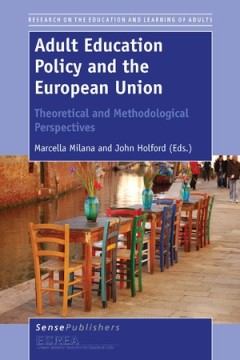
Adult education policy and the European Union : theoretical and methodologica…
The European Union is now a key player in making lifelong learning and adult education policy: this is the first book to explore a range of theoretical and methodological perspectives researchers can use to investigate its role. Chapters by leading experts and younger scholars from across Europe and beyond cover the evolution of EU policies, the role of policy ‘actors’ in what is often seen…
- Edition
- -
- ISBN/ISSN
- 9789462095472
- Collation
- xiii, 179p. : ill.
- Series Title
- -
- Call Number
- 374.924 ADU a
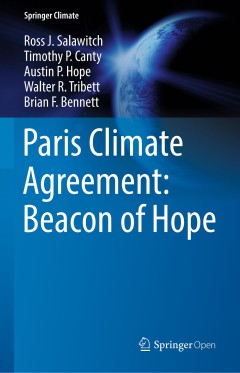
Paris climate agreement : beacon of hope
This volume presents an Empirical Model of Global Climate developed by the authors and uses that model to show that global warming will likely remain below 2ºC, relative to preindustrial, throughout this century provided: a) both the unconditional and conditional Paris INDC commitments are followed; b) the emission reductions needed to achieve the Paris INDCs are carried forward to 2060 and be…
- Edition
- -
- ISBN/ISSN
- 9783319469393
- Collation
- xvii. 186p. : ill.
- Series Title
- -
- Call Number
- 363.738746 PAR p
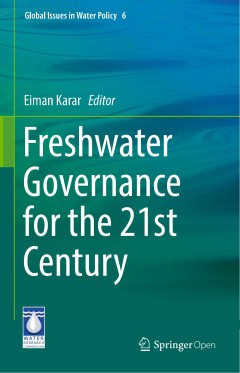
Freshwater governance for the 21st century
The objective of this book is to broadly illustrate the key aspects of water governance, mapping the spectrum of decision-making from techno-centric and eco-centric approaches, to hybrid concepts and people-centric approaches. Topics covered include the challenges for water-governance models, the polycentric model, the integration challenge, water in the decision-making hierarchy, and the rise …
- Edition
- -
- ISBN/ISSN
- 9783319433509
- Collation
- xxvii, 250p. : ill.
- Series Title
- -
- Call Number
- 343.0924 FRE f
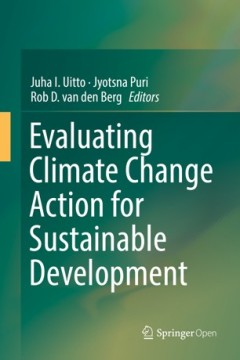
Evaluating climate change action for sustainable development
This authoritative book presents the ever progressing state of the art in evaluating climate change strategies and action. It builds upon a selection of relevant and practical papers and presentations given at the 2nd International Conference on Evaluating Climate Change and Development held in Washington DC in 2014 and includes perspectives from independent evaluations of the major internation…
- Edition
- -
- ISBN/ISSN
- 9783319437026
- Collation
- xxiv, 355p. : ill.
- Series Title
- -
- Call Number
- 363.73874 EVA e
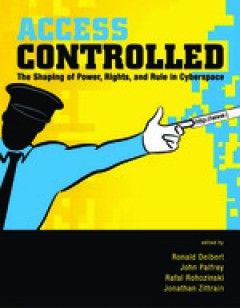
Access controlled : the shaping of power, rights, and rule in cyberspace
Reports on a new generation of Internet controls that establish a new normative terrain in which surveillance and censorship are routine.Internet filtering, censorship of Web content, and online surveillance are increasing in scale, scope, and sophistication around the world, in democratic countries as well as in authoritarian states. The first generation of Internet controls consisted largely …
- Edition
- -
- ISBN/ISSN
- 978-0262514354
- Collation
- XVI, 617 p.
- Series Title
- Information Revolution and Global Politics
- Call Number
- 005.8 ACC a
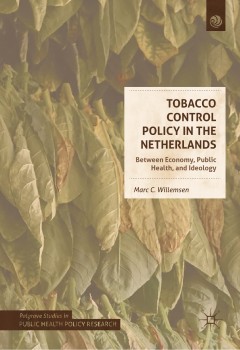
Tobacco control policy in the Netherlands : between economy, public health, a…
Governments have known since the 1960s that smoking results in irreversible health damage. This open access book examines why governments have done so little to combat this when they have been aware of the problem and its solutions for decades. What are the strategies and decisions that make a difference, given that policy environments are often not conducive to change? Taking the Netherlands a…
- Edition
- -
- ISBN/ISSN
- 9783319723686
- Collation
- xxi. 373p. : ill.
- Series Title
- -
- Call Number
- 320.6 WIL t
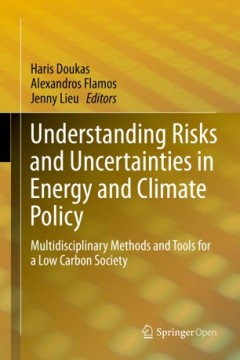
Understanding risks and uncertainties in energy and climate policy : multidis…
This open access book analyzes and seeks to consolidate the use of robust quantitative tools and qualitative methods for the design and assessment of energy and climate policies. In particular, it examines energy and climate policy performance and associated risks, as well as public acceptance and portfolio analysis in climate policy, and presents methods for evaluating the costs and benefits o…
- Edition
- -
- ISBN/ISSN
- 9783030031527
- Collation
- xvi, 259p. : ill.
- Series Title
- -
- Call Number
- 333.79 UND u
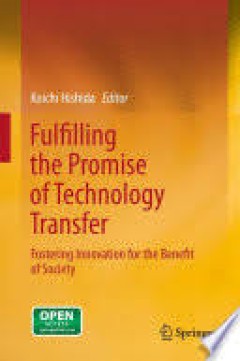
Fulfilling the promise of technology transfer : fostering innovation for the …
Universities and research institutes are increasingly expected to contribute to society by creating innovation from the returns of their research results and the establishment of new technologies. Toward that goal, Keio University in Japan held an international symposium titled “Fulfilling the Promise of Technology Transfer: Fostering Innovation for the Benefit of Society.” From that sympos…
- Edition
- -
- ISBN/ISSN
- 9784431543060
- Collation
- viii, 128p. : ill.
- Series Title
- -
- Call Number
- 338.926 FUL f
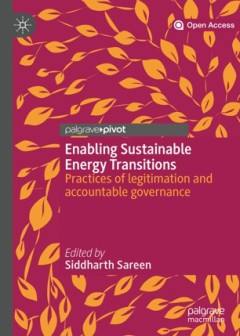
Enabling sustainable energy transitions : practices of legitimation and accou…
This open access book reframes sustainable energy transitions as being a matter of resolving accountability crises. It demonstrates how the empirical study of several practices of legitimation can analytically deconstruct energy transitions, and presents a typology of these practices to help determine whether energy transitions contribute to sustainability. The real-world challenge of climat…
- Edition
- -
- ISBN/ISSN
- 9783030268916
- Collation
- xxi, 168p. : ill.
- Series Title
- -
- Call Number
- 333.79 ENA e
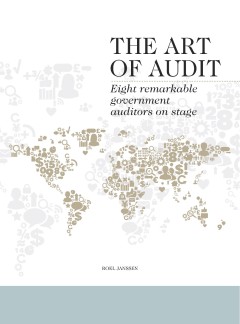
The art of audit : eight remarkable government auditors on stage
Accountability, good government and public trust are intricately linked. Supreme Audit Institutions fulfil an exceptional role in the public domain, checking if governments spend their money properly. They are like 'watchdogs' for citizens and parliaments with the purpose of auditing public expenditure and examining the effectiveness of policies. They aim to strengthen the trustworthiness of go…
- Edition
- -
- ISBN/ISSN
- 9789462980914
- Collation
- 103p. : ill
- Series Title
- -
- Call Number
- 657.835045 JAN a
 Computer Science, Information & General Works
Computer Science, Information & General Works  Philosophy & Psychology
Philosophy & Psychology  Religion
Religion  Social Sciences
Social Sciences  Language
Language  Pure Science
Pure Science  Applied Sciences
Applied Sciences  Art & Recreation
Art & Recreation  Literature
Literature  History & Geography
History & Geography